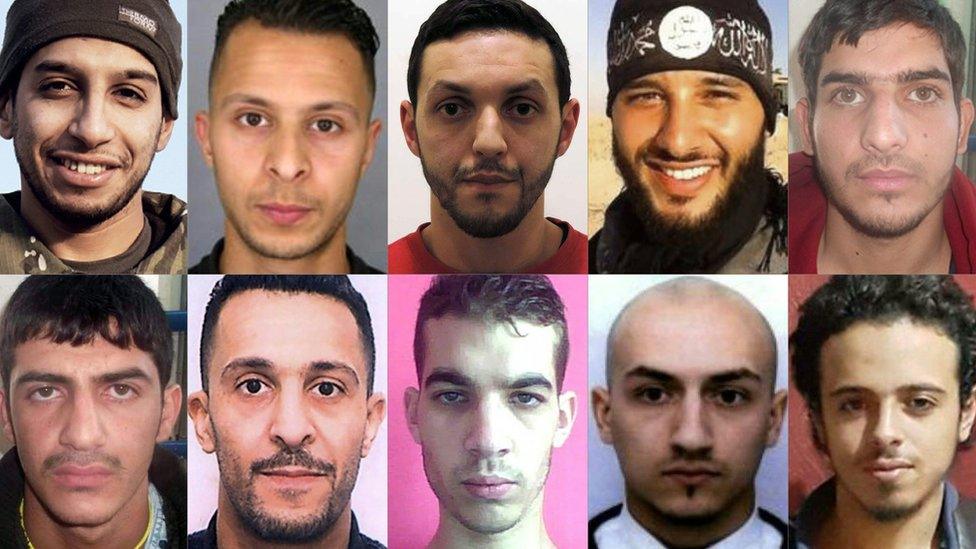Paris attacks: Is bashing Belgium justified?
- Published
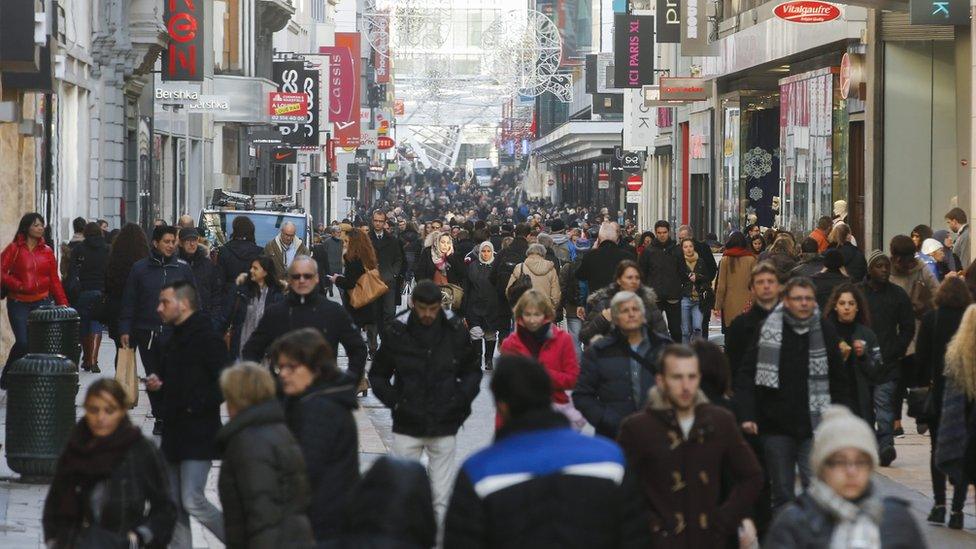
Belgium's position in Europe means it will always be a hub for good and bad
Belgium has been placed at the heart of the Paris attacks investigation. For days its capital was in lockdown due to fears of an imminent attack.
And around the world observers have begun to question why Belgium has become so central to the Islamist security threat in Europe.
The image portrayed by much of the world's media has been of a dysfunctional country with grotesquely complex and failing state structures - a country where terrorists could merrily go about their business unchallenged.
This focus on Belgium was in part due to the French government being so quick to point the finger at the security deficiencies of its smaller neighbour - arguably in order to avoid having to face its own failings.
And Belgium's geographical position as a small country in the heart of Europe - close to France, Germany and the UK - means it was always bound to become a hub, for good things and bad.
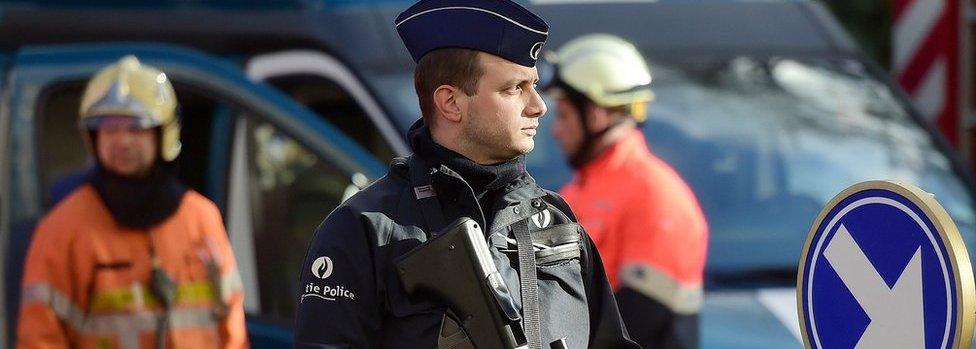
Brussels has six police zones and state security has fewer personnel than most countries
Some media commentators abandoned the need for justified critical analysis and resorted to Belgium bashing, quoting often ludicrously faulty information and using labels like "failed state".
They may have gone too far, but this does not mean we can ignore the real shortcomings in Belgium's governance.
Clearly, the Belgian intelligence services are not at the same level as many of their European counterparts. This is a consequence of a chronic lack of political interest.
Belgium has never had a strong intelligence culture, as it partly relied on safety support from its neighbours, particularly France.
State security has less means and fewer personnel than in most other countries.

The Belgian connection
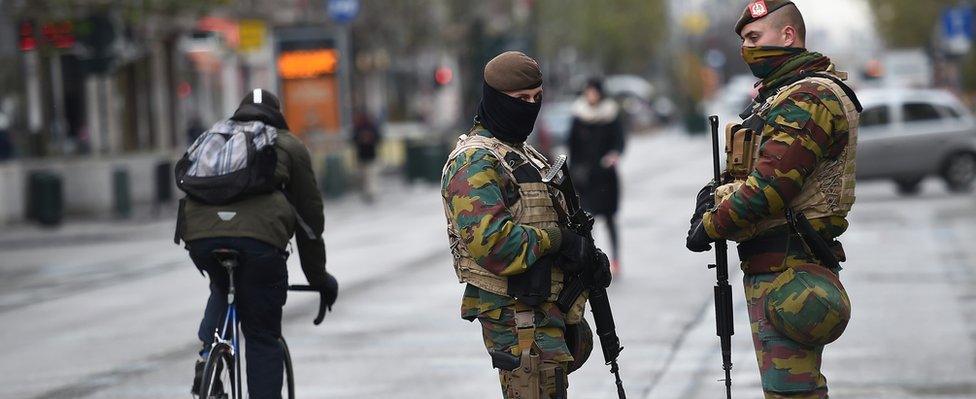
For four days this week Brussels was in effect in lockdown

Belgian politicians and police can also be accused of allowing their country to become a centre for the illegal arms trade and having some of the most lax weapon regulations in Europe until reforms 10 years ago.
On top of this, there has been a chronic lack of investment in certain Brussels neighbourhoods, followed by a look-the-other-way attitude towards radicalisation.
But much of the international criticism has focused on the failings of Belgium's state structures, which don't necessarily appear particularly suitable for dealing efficiently with today's challenges.
The country's constitution was reformed five times between 1970 and 2001. And in 2010-2011, it went without a government for 541 days due to a drawn-out deadlock over negotiating a sixth state reform.
Belgium has seen the creation of a complex accumulation of institutions, because of a series of compromises between its two main language groups and also as a result of political parties catering for their own interests.
The Belgian federation is composed of communities and regions.
The three communities correspond to the country's language groups - the Flemish community, the French community and the German-speaking community. Then there is the Flemish region, the Brussels Capital Region and the Walloon region.
The country is further divided into 10 provinces and 589 municipal councils.
Institutional imbroglio
Of course, complex institutions can also be found in other federal countries. But Belgium is a small largely (sub)urbanised country where everything is closely intertwined, especially in and around Brussels.
It is the only federation with two types of different federated entities that partially overlap, again in Brussels.
As a consequence, if you look at the broader metropolitan Brussels zone, for example, you find three regional governments, two community governments, three community commissions, dozens of communes, two provinces and a federal government that are all responsible for some aspects of policy.
The result is a lack of co-ordination and institutional imbroglio.
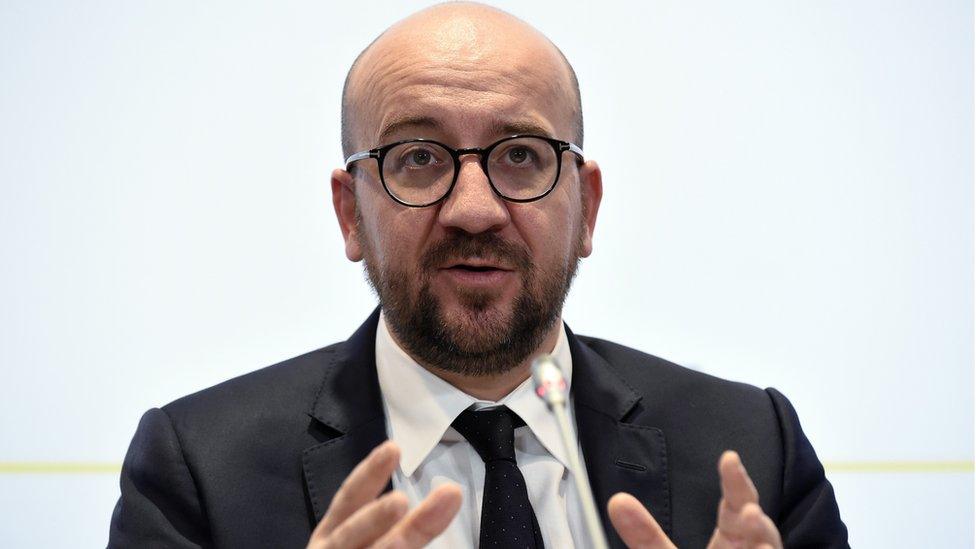
Belgian PM Charles Michel will have to rely on Belgium's different communities to carry out his security reforms
The Brussels region alone is divided into 19 communes and six police zones.
According to Flemish politicians, this is because their Francophone colleagues cling to their local power base. This accusation is correct but they fail to mention that they are themselves responsible for a system that has created three separate community commissions in Brussels that largely have the task of preventing radicalisation.
More generally, a cocktail of nationalist and partisan reasoning has led to state powers being shattered and new institutions and administrations being created over the years.
Tagging of suspects
In the most recent state reform, parts of the justice department were taken out of the hands of the federal government and divided up between the communities.
So while Belgian Prime Minister Charles Michel may have decisively announced plans last week to require people suspected of being radicalised wear electronic tags, he will have to rely on the different communities to carry out the measure.
In Brussels, power over this lies with both Flemish and French-speaking communities, so people in Brussels may be controlled differently.
This reform came out of four years of intense institutional work by Belgium's elite: valuable time and energy that could have been invested elsewhere - like, for instance, on improving security.
Given all this, it is actually quite remarkable that Belgium is not more akin to the international media's caricature of the country as a failed state.
In fact, it is still quite a good place to live.
Dave Sinardet is professor of political science at the Free University of Brussels, external.
- Published26 November 2015
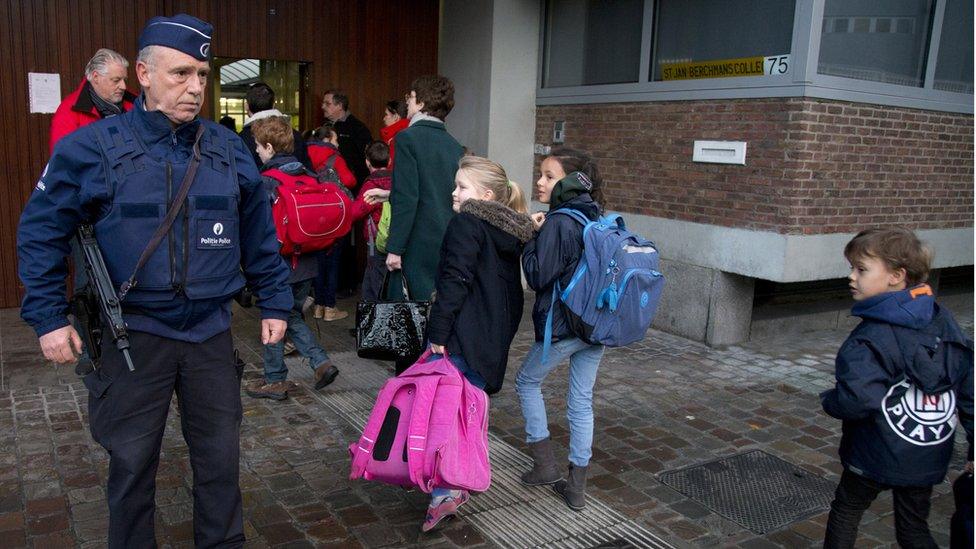
- Published27 April 2016
